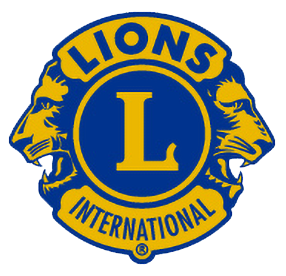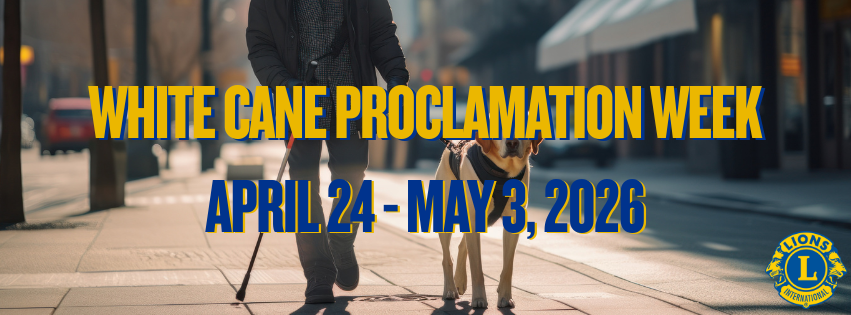WHITE CANE
Lions Clubs International is a volunteer organization dedicated to leadership development through community service. Lions are an international network of 1.4 million men and women in 210 countries who work together to answer the needs that challenge communities around the world. They are known for working to end preventable blindness. Lions participate in a vast variety of projects important to their communities. These projects range from cleaning up local parks to providing supplies to victims of natural disasters. There are over 12,000 members in 500+ clubs throughout Michigan.
In 1921, James Biggs, a photographer from Bristol, England, became blind following an accident. Because he was feeling uncomfortable with the amount of traffic around his home, he painted his walking stick white to be more easily visible. In 1930, Lion George A. Bonham, President of the Peoria Lions Club (Illinois) introduced the idea of using the white cane with a red band as a means of assisting the blind in independent mobility. The Peoria Lions approved the idea, white canes were made and distributed, and the Peoria City Council adopted an ordinance giving the bearers the right-of-way to cross the street. News of the club’s activity spread quickly to other Lions clubs throughout the United States, and their visually handicapped friends experimented with the white canes. Overwhelming acceptance of the white cane idea by the blind and sighted alike quickly gave cane users a unique method of identifying their special need for travel consideration among their sighted counterparts. Also in 1931, in France, Guilly d’Herbemont recognized the danger to blind people in traffic and launched a national “white stick movement” for blind people. She donated 5,000 white canes to people in Paris. Today white cane laws are on the books of every state in the US and in a few other countries, providing persons who are blind a legal status in traffic. The white cane universally acknowledges that the bearer is blind. For specific information contact your local government office for motor vehicles. Lions and International White Cane Safety Day International White Cane Safety Day is an opportunity to increase awareness about the white cane, which:
- Signifies that the pedestrian using it is blind or visually impaired;
- Alerts motorists of the need to exercise special caution and provide the user the right of way;
Symbolizes the independence, confidence and skills of the person who is using it. 1964: the U.S. Congress approved a resolution authorizing the President of the US to annually issue a proclamation designating October 15th* as “National White Cane Safety Day.” 1969: the International Federation of the Blind adopted October 15th* as “International White Cane Safety Day.” * The above referenced date is a suggested date. Lions clubs are free to hold awareness events according to the schedule of the club and the community it serves.
Health & Children’s Services Department.




